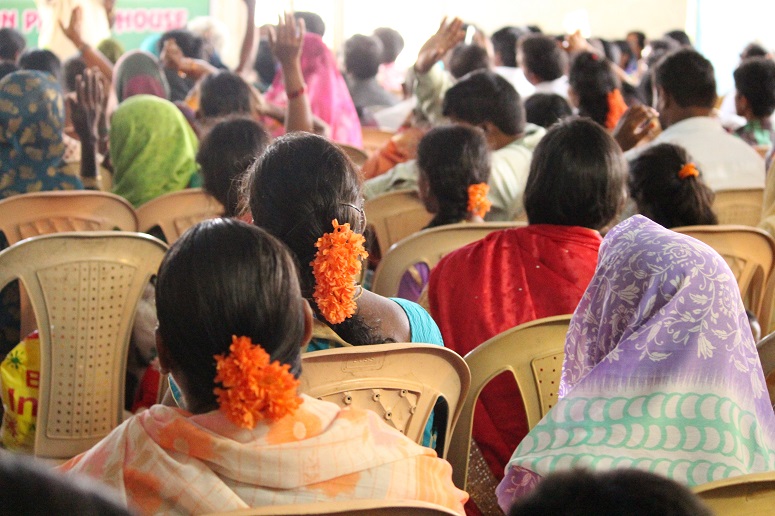
Frequent reports of violent attacks against India’s religious minorities show the “total impunity” enjoyed by their Hindu nationalist attackers, says one civil rights activist.
In one recent attack, a pastor, his wife and their congregation were attacked at their ‘house church’ in India’s southern Tamil Nadu state on Sunday (8 July), advocacy group CSW reported.
Paul Stephen was hit with a heavy stone, leaving him with severe injuries. He had reportedly received several threats during the past year. His wife, Prathiba Stephen, was also assaulted, including an attempted rape, CSW said, while other members of their family were also assaulted.
The pastor had previously reported incidents of violence and harassment against his church in Paguthampalayam village, with the local government being forced to step in to settle a conflict reportedly instigated by the head of a local Hindu extremist group, Hindu Munnani (Hindu Front).
Following the attack, four people were arrested who in turn filed a complaint against the pastor and his family, accusing them of assault.
“It is not uncommon for the victims of religiously motivated violence to find their cases undermined by counter-accusations by their attackers,” CSW said.
“We urge the authorities to ensure that the perpetrators are held to account,” said CSW’s Chief Executive Mervyn Thomas. “The cycle of impunity around cases such as this must be broken to ensure that Indian citizens of all religions can exercise their right to practise their religion or belief without fear.”
Nehemiah Christie, Director of Legislation & Regulations of the Synod of Pentecostal Churches in Tamil Nadu, condemned the “inaction” of local authorities. “We hope that the authorities will now take seriously the concerns raised by civil society in both Tamil Nadu and wider Indian society,” he said.
In another incident reported by CSW, Christians from Pratapgarh district in Uttar Pradesh state were attacked on 2 July by an armed Hindu mob, who broke into the church grounds shouting anti-Christian slogans.
They disrupted the prayer meeting with a gunshot into the air and attacked those inside the church, including women and children, CSW said. Eight people were reportedly wounded and taken to a local health centre.
Church furniture, equipment, motorbikes and literature were also reportedly damaged.
The attack has been attributed to Hindu Yuva Vahini, a group that has the support of the Chief Minister of Uttar Pradesh, according to civil rights activist John Dayal.
“Impunity is total in the state, where Muslims and Christians bear the brunt of the ruling ideology,” he said. “It needs to be remembered that Uttar Pradesh does not have an ‘anti-conversion law’, and yet even the police and judiciary presume that evangelical activity and even prayer groups are illegal or a criminal activity.”
Earlier this week, World Watch Monitor reported the detention of 16 more Christians in Jharkhand state, which became the seventh state to pass a so-called “anti-conversion law” last year. As World Watch Monitor has reported, although ostensibly aimed at preventing “forced conversions”, in reality such laws are often used to prevent all conversions – whether by force or through free choice – and especially conversions away from Hinduism to minority religions such as Christianity.